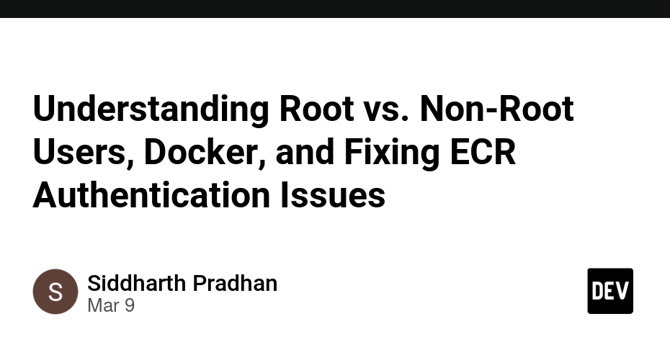Dev
1M
343

Image Credit: Dev
Understanding Root vs. Non-Root Users, Docker, and Fixing ECR Authentication Issues
- Root vs. Non-Root Users: Root user in Linux has unlimited privileges, while non-root users have limited permissions in Docker.
- ECR Token Expiration: The 'authorization token has expired' error often stems from differences in user interactions with Docker and ECR.
- Fixing Token Expiration Error: Solutions include running Docker commands without sudo, authenticating as root, or using Docker credential helper.
- Best Practices: Recommendations include avoiding sudo with Docker, utilizing a credential helper, rotating AWS credentials, monitoring token expiry, and using IAM roles for EC2 instances.
- Root User Significance: Root user possesses immense power but requires caution, while the non-root user operates within boundaries with freedom.
- Balancing Act: Working with Docker and ECR involves managing trust, permissions, and wisdom to navigate the DevOps landscape effectively.
- Philosophical Reflection: Root user symbolizes power, non-root user signifies wisdom; the interplay mirrors life's balance between boldness and restraint.
- Guiding Principles: Embrace curiosity, break barriers, but stay grounded to uphold system integrity and continuous learning.
- Key Message: Strive for growth and innovation while respecting boundaries and foundational knowledge in your DevOps journey.
- Closing Words: Embrace the duality of power and wisdom in your pursuits, and remember to remain curious, mindful, and rooted in knowledge.
Read Full Article
20 Likes
For uninterrupted reading, download the app